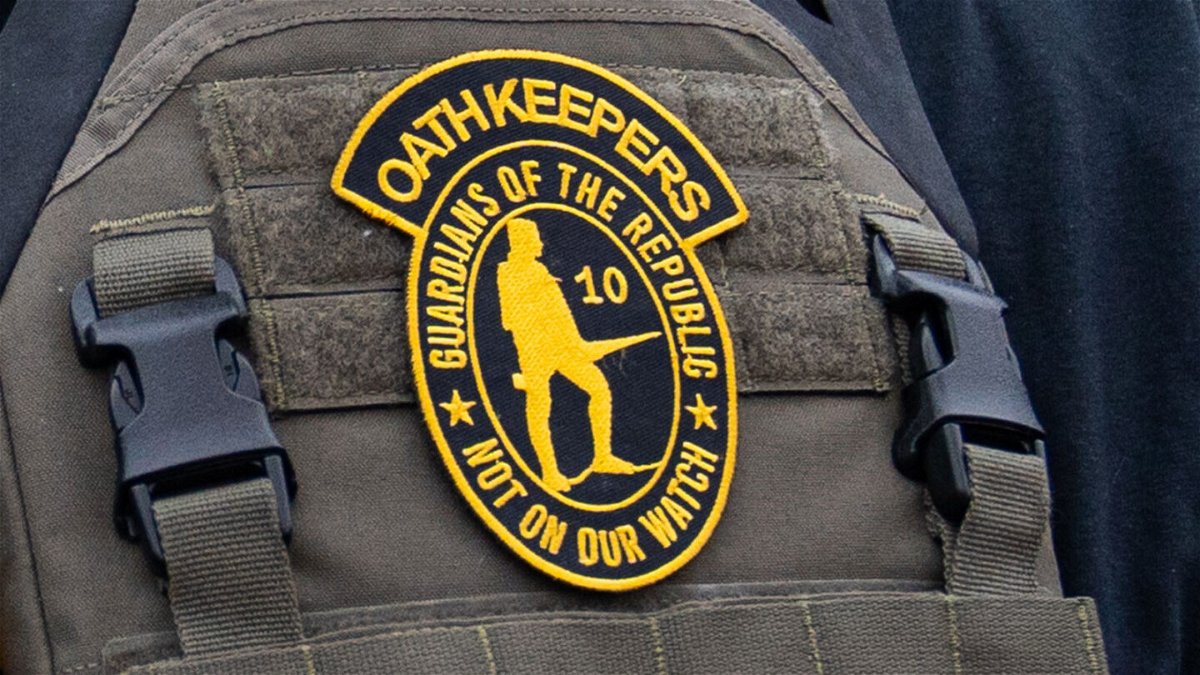Second Oath Keepers sedition trial presents new challenges for prosecutors

One week after the historic seditious conspiracy conviction of Oath Keepers founder Stewart Rhodes
By Hannah Rabinowitz and Holmes Lybrand, CNN
One week after the historic seditious conspiracy conviction of Oath Keepers founder Stewart Rhodes, federal prosecutors will try to once again prove that other members of the far-right militia were planning to violently stop Congress from certifying the 2020 presidential election.
This time, however, prosecutors face a new challenge — convincing a jury that lower-level members of the Oath Keepers and associates were in on the alleged sedition plot and not just swept up in the mob on January 6, 2021.
The trial starts Tuesday with jury selection in Washington, DC, and is expected to last five to seven weeks. In addition to seditious conspiracy, the defendants face charges of conspiracy to obstruct an official proceeding, obstruction of an official proceeding, and conspiracy to prevent an officer from discharging duties. They have pleaded not guilty.
In the first trial, a jury acquitted three of the five defendants of seditious conspiracy, finding that the government had not sufficiently proven they were involved in a plan orchestrated by Rhodes. Those three defendants were alleged to have been leaders of the group on January 6 and instrumental in setting up the armed quick reaction force in Virginia.
Prosecutors struggled to overcome testimony from several civilian defendants, including other members of the Oath Keepers, who repeatedly stated there was no explicit plan to storm the Capitol on January 6, 2021.
All five defendants in the first trial, however, were found guilty of obstructing an official proceeding, which carries the same 20-year maximum sentence as the seditious conspiracy charge.
“It sends a message that efforts to undermine our democracy will not be tolerated,” said Alex Friedfeld, an investigative researcher with the Anti-Defamation League’s Center on Extremism.
“What last week’s convictions did was it made clear, despite what the narratives have been trying to say, that the events of that day were not a peaceful protest, nor were they a random act of violence,” Friedfeld added. “These convictions set a precedent in these January 6 case. That seditious conspiracy is a conviction that can be achieved.”
The new round of defendants — Roberto Minuta, Joseph Hackett, David Moerschel and Edward Vallejo — are more disconnected from the top brass of the far-right militia. All four have pleaded not guilty.
“I think it’s important not to overstate or frame this as it’s either ‘seditious conspiracy or bust’ for the DOJ,” Jon Lewis, a research fellow at the Program on Extremism at George Washington University, told CNN. “There is still a significant amount of evidence to convict each of these second stack of defendants on the related conspiracy charges.”
Like the defendants in the first trial, Minuta, Hackett, Moerschel and Vallejo allegedly sent several violent messages in the lead up to January 6 and discussed fighting what they viewed as a corrupt government. The men also allegedly contributed weapons to the quick reaction force, and three are accused of entering the Capitol building.
But Minuta, Hackett, Moerschel and Vallejo are not accused of leading the charge at the Capitol on January 6. Prosecutors have alleged that the four were waiting for orders from Oath Keepers who were higher up in the command structure of the militia.
“We’d be having a much different conversation if for example Rhodes and (Kelly) Meggs had been acquitted on seditious charges,” Lewis added, noting that even if the jury acquitted other members on seditious conspiracy, “they still got Rhodes.”
The defendants
Roberto Minuta is an Oath Keeper and tattoo artist from New Jersey. Minuta worked as a bodyguard for Trump ally Roger Stone on January 6, according to prosecutors, and raced in a golf cart towards the Capitol building when he heard it had been breached.
Joseph Hackett is a local Oath Keeper point person from Sarasota, Florida. Hackett, who went by the monikers “Ahab” and “Faith,” allegedly emailed photographs of handwritten, cursive notes as a means of “secure comms.”
David Moerschel is also an Oath Keeper from Florida who went by the moniker “Hatsy.” Moerschel and Hackett are both alleged to have looked for House Speaker Nancy Pelosi inside the Capitol during the riot.
Edward Vallejo, an Army veteran from Arizona, is not alleged to be a member of the Oath Keepers. Though prosecutors allege Vallejo helped oversee the QRF on January 6, his defense attorney claimed Vallejo spent the day wandering DC in search of his truck, which he forgot where he parked.
The-CNN-Wire
™ & © 2022 Cable News Network, Inc., a Warner Bros. Discovery Company. All rights reserved.